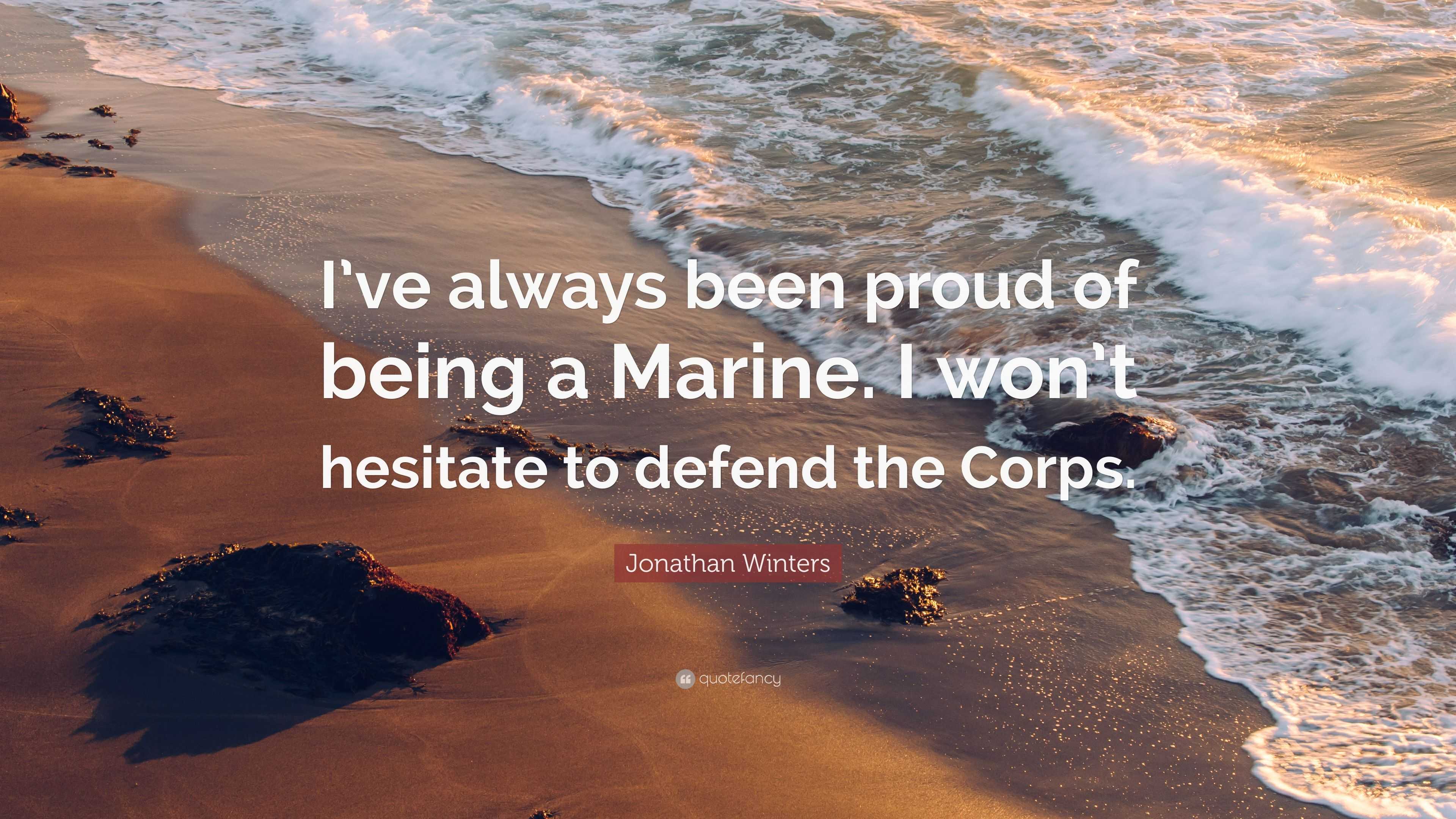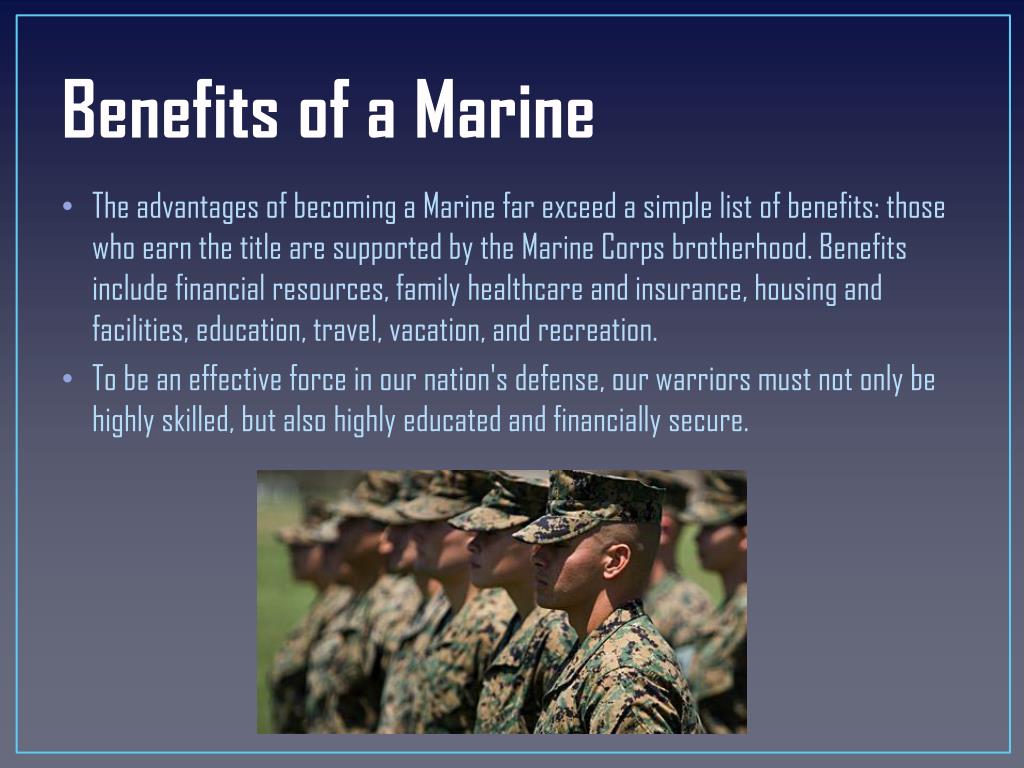Is Being A Marine Worth It

The crisp salute, the unwavering gaze, the weight of a nation's expectations on young shoulders – the image of a United States Marine is etched in the American consciousness. But behind the polished facade of courage and commitment lies a complex reality, a grueling test of physical and mental endurance that begs the question: Is the profound sacrifice required truly worth it?
This article delves into the multifaceted reality of Marine Corps service, exploring the intense challenges, the undeniable rewards, and the long-term implications of choosing this path. We will examine the physical and psychological demands, the potential for career advancement, the educational opportunities, and the enduring sense of brotherhood forged in the crucible of Marine Corps training. We will also confront the difficult truths about combat exposure, the risk of injury, and the challenges of transitioning back to civilian life. Ultimately, this is an attempt to offer a balanced perspective, informed by data and diverse voices, allowing readers to grapple with the profound question of whether the title of "Marine" is worth the immense cost.
The Crucible of Transformation: Training and Deployment
The journey to becoming a Marine begins with an arduous initiation at recruit training. From the moment recruits step off the bus, they are subjected to relentless physical and mental conditioning, designed to strip away individuality and forge unbreakable bonds of camaraderie.
"Marine Corps Recruit Training is designed to break you down and build you back up as a Marine," states the official Marine Corps Training and Education Command website. The 13-week program pushes recruits to their absolute limits, demanding unwavering discipline, selfless teamwork, and unflinching obedience.
Beyond recruit training, Marines face specialized training tailored to their specific roles and potential deployments. Deployments can range from humanitarian aid missions to combat operations, each carrying its own set of risks and challenges.
The psychological impact of deployment, particularly in combat zones, can be significant. Exposure to violence, loss, and prolonged stress can lead to post-traumatic stress disorder (PTSD), anxiety, and depression. The Department of Veterans Affairs (VA) offers extensive resources for veterans struggling with these issues, highlighting the lasting consequences of military service.
Benefits Beyond the Battlefield: Education and Career Opportunities
Service in the Marine Corps is not solely defined by sacrifice and hardship. The Corps offers a range of benefits designed to support Marines during and after their service.
The GI Bill, a cornerstone of veteran benefits, provides financial assistance for education and training. This allows Marines to pursue higher education, vocational skills, or specialized certifications, significantly enhancing their career prospects upon leaving the Corps.
Furthermore, the leadership skills, discipline, and problem-solving abilities honed in the Marine Corps are highly valued by employers in the civilian sector. Many companies actively recruit veterans, recognizing the unique qualities they bring to the workforce.
The Marine Corps also offers numerous opportunities for career advancement within its ranks. Ambitious Marines can rise through the ranks, assuming greater responsibilities and leadership roles. The experience gained in the Corps can be a springboard to a successful career, both inside and outside the military.
The Enduring Brotherhood: Camaraderie and Lasting Bonds
One of the most profound aspects of Marine Corps service is the enduring sense of brotherhood forged in shared experiences. The intense training, the deployments, and the sacrifices create bonds that transcend time and distance.
"Once a Marine, always a Marine," is more than just a motto; it reflects the deep connection that unites Marines, regardless of their rank or years of service. This camaraderie provides a strong support system for veterans, helping them navigate the challenges of civilian life.
Veteran organizations, such as the Marine Corps League and the Veterans of Foreign Wars (VFW), offer opportunities for Marines to connect with one another, share their experiences, and support their fellow veterans. These organizations play a crucial role in fostering a sense of community and providing assistance to those in need.
The Price of Service: Risks and Challenges
While the benefits of Marine Corps service are undeniable, it is essential to acknowledge the inherent risks and challenges. The physical demands of the job can lead to injuries, both acute and chronic.
According to the Department of Defense, musculoskeletal injuries are common among service members, often resulting from intense physical training and repetitive movements. Furthermore, the risk of combat-related injuries, including traumatic brain injuries (TBIs) and amputations, is a constant reality for Marines deployed to war zones.
The psychological toll of service can also be significant. PTSD, anxiety, and depression are common among veterans, often stemming from exposure to trauma and the challenges of transitioning back to civilian life. The suicide rate among veterans is alarmingly high, highlighting the urgent need for improved mental health services and support.
A Personal Perspective: Weighing the Costs and Benefits
The decision of whether or not to join the Marine Corps is a deeply personal one, requiring careful consideration of the costs and benefits. There is no easy answer, as the value of service is subjective and depends on individual circumstances.
For some, the opportunity to serve their country, to defend freedom, and to be part of something larger than themselves is worth any sacrifice. For others, the risks of injury, trauma, and the disruption of civilian life outweigh the potential rewards.
Ultimately, the decision rests on a thorough assessment of one's personal values, priorities, and capabilities. Talking to current and former Marines, researching the realities of service, and carefully considering the long-term implications are essential steps in making an informed choice.
Looking Ahead: Supporting Our Marines
Regardless of whether one chooses to serve, it is imperative that we, as a nation, support our Marines and veterans. This includes providing access to quality healthcare, mental health services, and educational opportunities.
We must also work to reduce the stigma surrounding mental health issues and encourage veterans to seek help when they need it. Furthermore, we must ensure that veterans have access to meaningful employment opportunities and the resources they need to successfully transition back to civilian life.
By honoring their service and providing them with the support they deserve, we can ensure that the sacrifices made by our Marines are not in vain. The value of their commitment extends beyond the battlefield, enriching our society and strengthening our nation for generations to come.


















